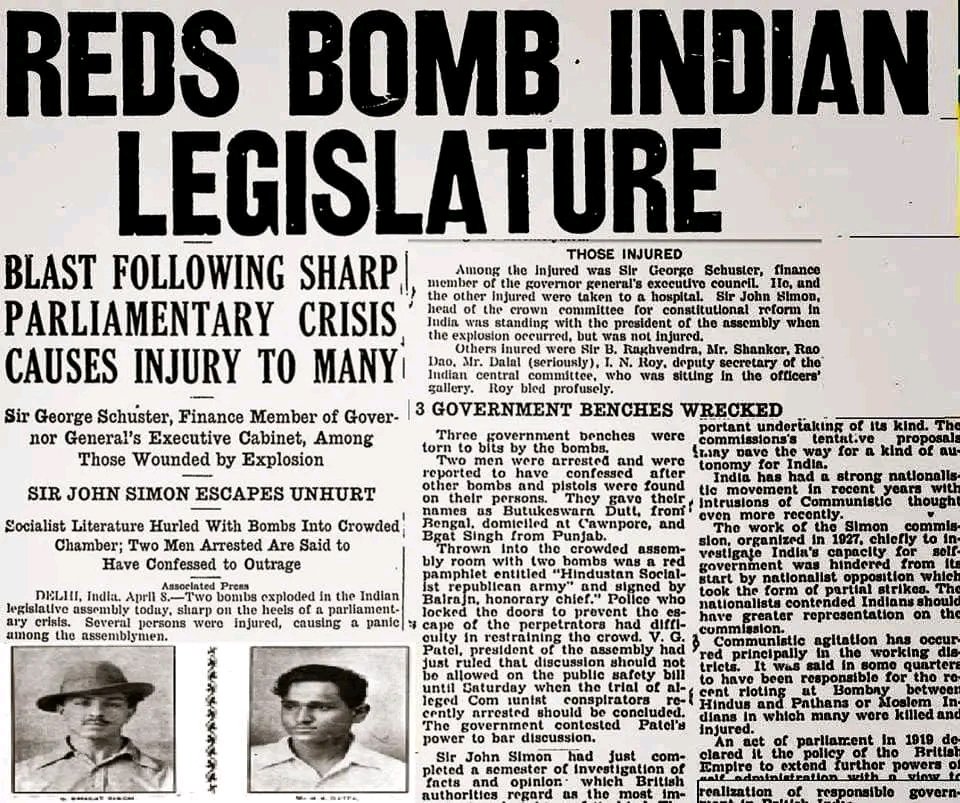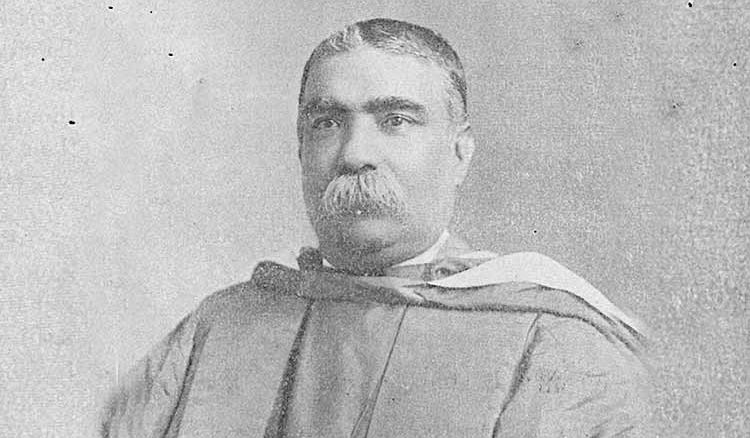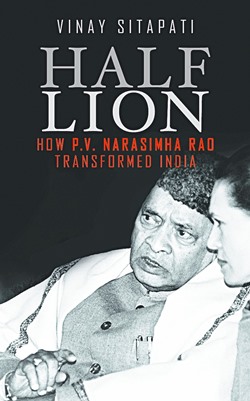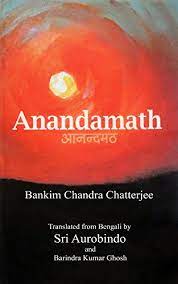
"It Takes A Loud Sound To Make The Deaf Hear"
Read the pamphlets which were thrown into the gallery following a smoke bomb.
The 2 Freedom Fighters, #BhagatSingh and #BatukeshwarDutt
stood still.
On 08/04/1929, a Smoke Bomb Exploded in Central Legislative Assembly, Delhi.


Read the pamphlets which were thrown into the gallery following a smoke bomb.
The 2 Freedom Fighters, #BhagatSingh and #BatukeshwarDutt
stood still.
On 08/04/1929, a Smoke Bomb Exploded in Central Legislative Assembly, Delhi.



They never wanted to escape. They readily accepted imprisonment, as they believed that it would inspire the next generation of revolutionaries to fight for the cause of freedom.
The Painful History of
#BatukeshwarDutt, close friend of Bhagath on his Punyatithi.
In the book,
The Painful History of
#BatukeshwarDutt, close friend of Bhagath on his Punyatithi.
In the book,
" The Jail Note book & Other Writings" Chamanlal who compiled various letters, incidents wrote that "It was clear from the beginning that these bombs were to be harmless, not designed to kill or injure anyone, but to create an explosion that would make the deaf hear.
At the appointed time Bhagath Singh & BK Dutta threw the bombs over the empty seats in central assembly, threw the historic pamphlets to make the deaf hear & shouted slogans #InquilabZindabad &
#SamrajyavaadKaNaashHo"
After years, Asaf Ali, the lawyer of Batukeshwar disclosed
#SamrajyavaadKaNaashHo"
After years, Asaf Ali, the lawyer of Batukeshwar disclosed
in an interview that Batukeshwar never threw the bomb but wanted to stay with Bhagath from beginning to the end.
For this case, Bhagath, Sukhdev & Batukeshwar were charged with Life Imprisonment.
In Lahore Jail where they were kept they started hunger strike for better
For this case, Bhagath, Sukhdev & Batukeshwar were charged with Life Imprisonment.
In Lahore Jail where they were kept they started hunger strike for better
amenities and they succeeded too.
Few years later, Batukeshwar was released (From Kaalapaani)
under general amnesty (by this time Sukhdev Rajguru & Bhagath were hanged for assassination of Saunders).
In Cellular jail Batukeshwar had contracted Tuberculosis, but it didn't
Few years later, Batukeshwar was released (From Kaalapaani)
under general amnesty (by this time Sukhdev Rajguru & Bhagath were hanged for assassination of Saunders).
In Cellular jail Batukeshwar had contracted Tuberculosis, but it didn't
deter him from
Participating in Quit India
Movement, the British jailed him again for 4 years..
When Bharat got independence, many freedom fighters were recognised & honoured, but Dutt didn't get his due, even though there were clear evidence of his part in freedom struggle.
Participating in Quit India
Movement, the British jailed him again for 4 years..
When Bharat got independence, many freedom fighters were recognised & honoured, but Dutt didn't get his due, even though there were clear evidence of his part in freedom struggle.
In Nov 1947, Batukeshwar Dutta married Anjali & spent his remaining life in Poverty & away from political limelight.
Born on 18/11/1910, the Bengali Brahmin attained Mukti from his sufferings caused by Independent Bharat's Ungrateful People on July 20th 1965 at AIIMS, Delhi.
Born on 18/11/1910, the Bengali Brahmin attained Mukti from his sufferings caused by Independent Bharat's Ungrateful People on July 20th 1965 at AIIMS, Delhi.
#BatukeshwarDutt was Cremated at the same spot where Bhagath, Rajguru & Sukhdev were cremated.
All those sacrifices, what for?

All those sacrifices, what for?


• • •
Missing some Tweet in this thread? You can try to
force a refresh









